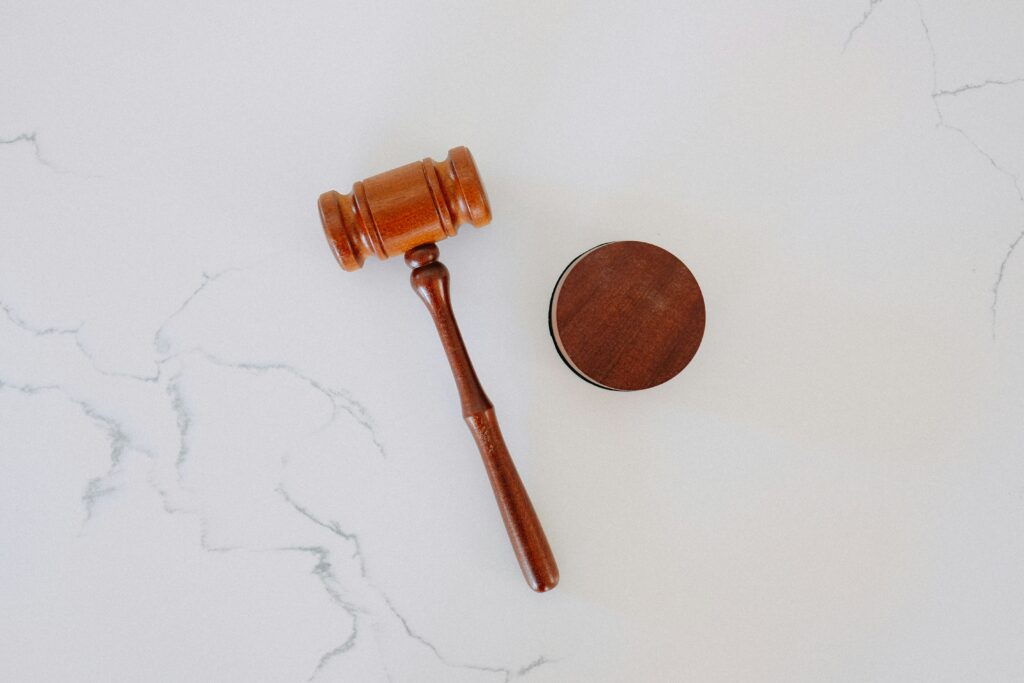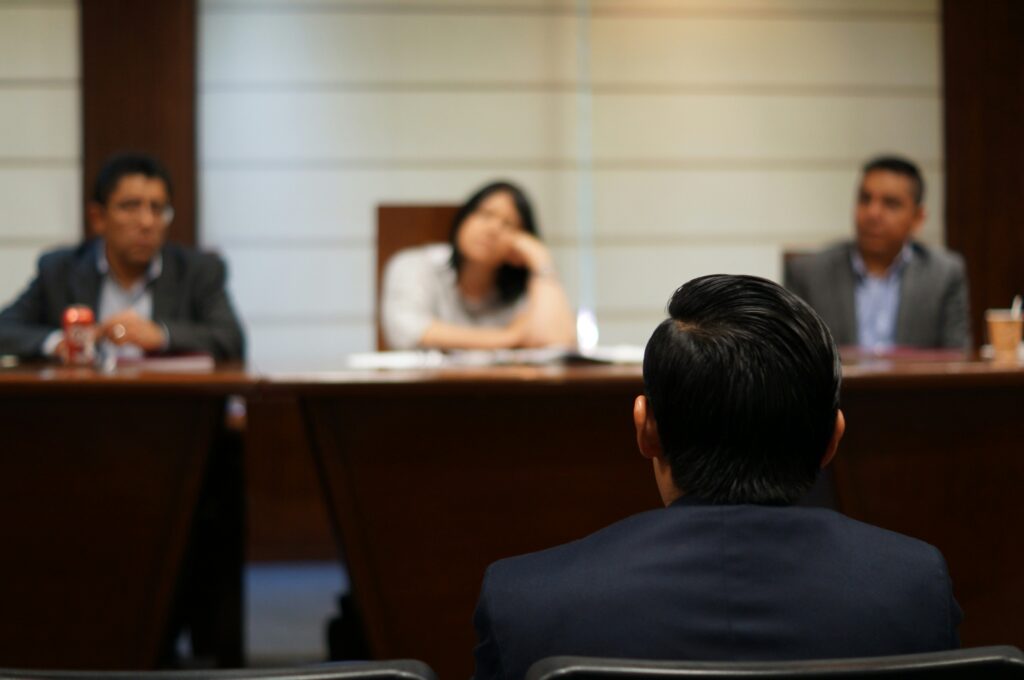Published on: 25th May 2025
Authored by: Anjali Sharma
Techno India University
CASE SUMMARY
In a landmark decision, the Hon’ble Supreme Court clarified that Superior Courts should refrain from interfering in the statutory mechanism established under the Insolvency and Bankruptcy Code (IBC) when personal guarantor insolvency proceedings are ongoing. The judgment reiterated that the appointment of a Resolution Professional under Section 97 of the IBC is a statutory procedure and that objections related to the existence or quantum of debt should be dealt with by the Adjudicating Authority, not the High Court. The ruling reinforced the procedural framework of the IBC and emphasized that judicial interference should be avoided unless exceptional circumstances arise.
The dispute arose from personal insolvency proceedings initiated against Farooq Ali Khan, a director and personal guarantor of Associate Décor Limited (the corporate debtor). The company had availed significant loans from a consortium of banks, including the petitioner, Bank of Baroda. Upon default by the corporate debtor, the petitioner invoked the personal guarantee and raised a claim of Rs. 244 crores. However, the respondent, Farooq Ali Khan, contested this, offering only Rs. 25 crores, which was not accepted by the bank.
Subsequently, Bank of Baroda filed a personal insolvency application under Section 95(1) of the IBC. The National Company Law Tribunal (NCLT) appointed a Resolution Professional and directed the preparation of a report under Section 99 of the IBC to assess whether the insolvency proceedings should proceed. The respondent raised objections to his personal liability, but the NCLT held that such issues would be evaluated only after receiving the Resolution Professional’s report.
Challenging this, the respondent filed a writ petition under Article 226 of the Constitution before the High Court, which allowed the petition. The High Court ruled that the personal insolvency proceedings were not maintainable as the respondent’s liability as a guarantor had allegedly been extinguished. This judgment effectively restrained the Adjudicating Authority from proceeding with the case. Aggrieved, Bank of Baroda approached the Supreme Court.
QUESTIONS OF LAW
-
Whether the High Court was justified in exercising its writ jurisdiction under Article 226 to quash personal insolvency proceedings initiated under the IBC?
-
Can the High Court adjudicate upon the existence of a personal guarantor’s liability before the Resolution Professional has submitted a report under Section 99 of the IBC?
-
Whether legal proceedings under Sections 95 to 100 of the IBC must be allowed to progress without judicial interference?
FACTS
-
Pursuant to the issuance of a demand under Form B in accordance with Rule 7(1) of the IBC (Insolvency and Bankruptcy (Application to Adjudicating Authority for Insolvency Resolution Process for Individuals and Partnership Firms) Rules, 2019), Bank of Baroda filed an application for initiating personal insolvency proceedings.
-
On 16.02.2024, the NCLT appointed a Resolution Professional, as reported in Bank of Baroda v. Farooq Ali Khan, (2024) ibclaw.in 1236 NCLT.
-
Relying on the precedent laid down in Dilip B. Jiwrajka v. Union of India (2023), the NCLT noted that objections to the personal guarantor’s liability must be considered only after the submission of the Resolution Professional’s report under Section 99.
-
Nonetheless, the respondent filed a writ petition before the High Court under Article 226, contending that the personal guarantee had been waived.
-
The High Court, in Farooq Ali Khan v. Bank of Baroda and Ors., (2024) ibclaw.in 496 HC, allowed the writ and held that the personal insolvency proceedings were not maintainable due to extinguishment of liability. It distinguished the decision in Jiwrajka on the grounds that the application before the Adjudicating Authority was not maintainable in that case.
-
Following the High Court’s decision, the NCLT disposed of the insolvency application by its order dated 19.06.2024.
CONTENTIONS
Appellant (Bank of Baroda):
-
The High Court’s intervention at the interim stage—when only a Resolution Professional was appointed under Section 97—was premature and unwarranted.
-
Under Sections 95 to 100 of the IBC, there is a well-defined legal process whereby the Resolution Professional must first assess the application and submit a report under Section 99 before any adjudication.
-
The High Court erred in adjudicating on complex issues of fact and law—such as the existence of debt—bypassing the statutory process provided under the IBC.
Respondent No. 1 (Farooq Ali Khan):
-
His liability as a personal guarantor had been discharged; therefore, personal insolvency proceedings were not sustainable.
-
The High Court was justified in intervening to verify whether the insolvency application was maintainable before the Adjudicating Authority.
-
The Jiwrajka precedent was not applicable as that case did not involve questions relating to the maintainability of the application itself.
JUDGMENT (SUPREME COURT)
Justice Pamidighantam Sri Narasimha delivered the judgment.
The Supreme Court held that the High Court had erred in invoking its writ jurisdiction under Article 226 to interfere with proceedings initiated under Section 95 of the IBC. The Court reaffirmed that the IBC provides a comprehensive legal framework, where the Resolution Professional must examine the application and submit a report under Section 99 to the Adjudicating Authority, which may then accept or reject the application under Section 100.
Relying on the principles laid down in Dilip B. Jiwrajka v. Union of India (2024) 5 SCC 435, the Court reiterated that:
-
No judicial determination occurs at the stage of appointing a Resolution Professional under Section 97.
-
The Adjudicating Authority is not required to determine jurisdictional facts at the pre-report stage.
-
Judicial scrutiny only arises when the Adjudicating Authority considers the report of the Resolution Professional under Section 100.
As such, the Supreme Court set aside the impugned High Court order and revived the insolvency proceedings against the respondent, directing that the matter proceed from the stage of the NCLT’s earlier order dated 16.02.2024.
The Court emphasized that when a statutory mechanism is laid down by law, judicial authorities must respect the procedural framework and refrain from supplanting the jurisdiction of specialized bodies.
No order as to costs. All pending applications, if any, were disposed of.
CONCLUSION
Based on the above observations, the Hon’ble Supreme Court allowed the appeal and set aside the High Court’s impugned order. Accordingly, the personal insolvency application in C.P.(IB) No. 139/BB/2022 was restored to the file of the NCLT, Bengaluru, to proceed from the stage of the order dated 16.02.2024. The judgment underscored that when statutory procedures are in place under special legislation like the IBC, judicial intervention should be minimal and only exercised in rare circumstances. Questions of liability, debt existence, and maintainability are to be determined by the Adjudicating Authority after due consideration of the Resolution Professional’s report, not pre-emptively by High Courts.




